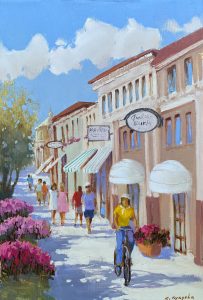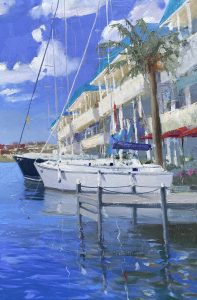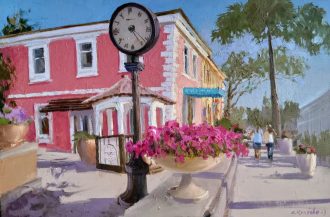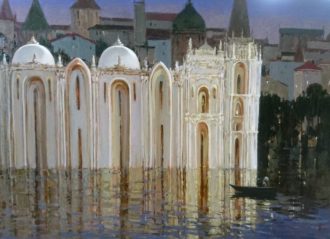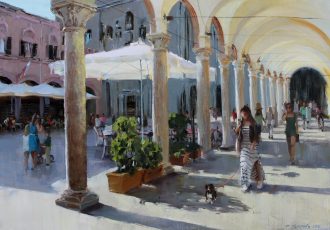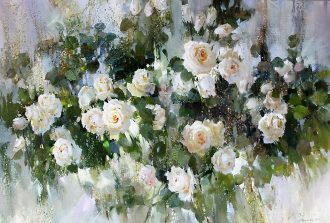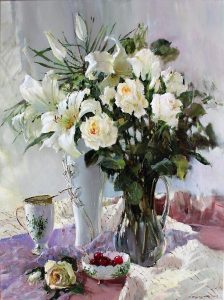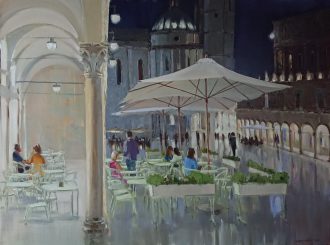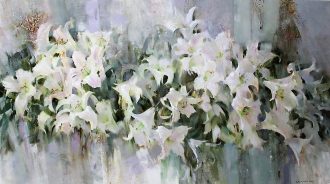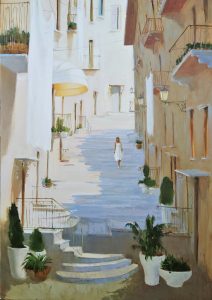< Artists
Svetlana Kukueva
Svetlana Kukueva was born in Ordgonikidzeabad, Tadgisky Soviet Socialist Republic in 1965.
Kukueva appeared on the Naples Art scene relatively recently and immediately won the appreciation of art connoisseurs.
Svetlana’s art can be described as romantic realism.
Her “Flowers” series is a clear reminder of Art Nouveau decorative panels of Alphonse Mucha and Gustav Klimt, where artist uses organic motives and ornamentation, natural colors and filling all the space of the canvas with blossoms and vines, leaves and buds. It is extremely difficult to do this, because of the danger of losing the composition and then the painting will literally fall apart. But Svetlana demonstrates a supreme feeling of structure in her floral canvases. They give a strong impression of well thought-through ornament with the clear rhythm and symphony of colors and shapes. In some instances, her works remind us florals of Georgia O’Keeffe’s ones. Enlarged images of flowers and plant images, quite natural in the image, but in the mood and perception, cosmic, not real, strong, sexy, magical …
Svetlana’s Italian Streets series is a remarkable blend of impressionism, realism and surrealism. The artist does not adhere to any particular style, her work on the border of two trends – magical realism and precision, on the verge of objective and non-objective. Clear, like a drawing, with sharp angles characteristic of photo art, the views are combined with surreal images of dreams and dreams. Exquisite and vibrant works possess rhythmic harmony, symbolic language and simplified forms close to cubist.
Naples Art Museum (Artis Naples) is paying great tribute to the style of Art Nouveau, conducting number of exhibitions, dedicated to this movement.
- Member of the Union of Russian artists since 2001.
- Member of Creative Union of Artists of Russia since 2010.
- Member of Association of Artists of South of Russia “Koleso” (the Wheel) since 2002.
- Awarded the Gold Medal of Creative Union of Artists of Russia for “contributing to Russian culture” in 2014.

